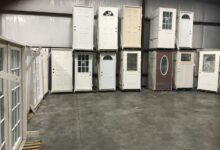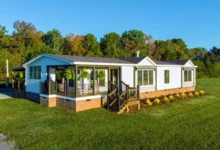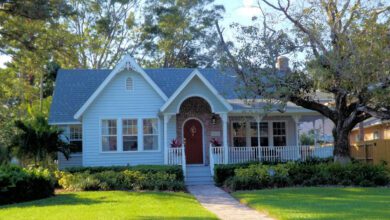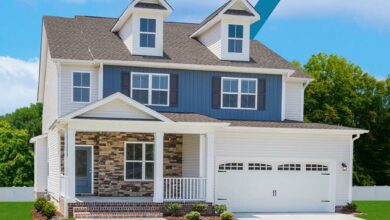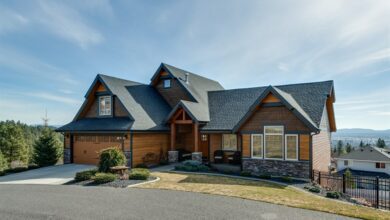Manufactured Homes for Sale in Indiana
Manufactured Homes for Sale in Indiana – Are you considering buying a manufactured home in Indiana? With their affordability, customizable features, and quick construction time, manufactured homes have become a popular choice for many homebuyers. Whether you’re a first-time buyer or looking for a second home, this comprehensive guide will provide you with all the information you need to make an informed decision. From the benefits of manufactured homes to the buying process, we’ve got you covered.
In this article, we will explore the manufactured homes market in Indiana, highlighting the key factors you should consider before making a purchase. We’ll discuss the advantages of choosing a manufactured home, the types of homes available, financing options, and the best places to find manufactured homes for sale in Indiana. By the end of this guide, you’ll have a clear understanding of the manufactured home market in Indiana and be ready to take the next steps towards homeownership.
Understanding Manufactured Homes
Manufactured homes, also known as mobile homes, are prefabricated houses built in a factory and then transported to the desired location. These homes are constructed under strict building codes set by the Department of Housing and Urban Development (HUD) to ensure safety and quality standards are met. Unlike traditional stick-built homes, manufactured homes are built on a steel chassis, which allows for easy transportation and installation.
Benefits of Manufactured Homes
Manufactured homes offer several advantages over traditional homes. One of the key benefits is affordability. Manufactured homes are typically more affordable than site-built homes, making them an attractive option for buyers on a budget. Additionally, they offer shorter construction times, allowing homeowners to move in sooner. These homes also offer customization options, allowing buyers to select floor plans, finishes, and other features that suit their preferences.
Types of Manufactured Homes
When it comes to manufactured homes, there are several types to choose from. Single-section homes are the most common type and are typically smaller in size. They are often used as starter homes or for downsizing. Multi-section homes, on the other hand, are larger and offer more space. They are suitable for growing families or those who desire more room. Modular homes are another type of manufactured home that is built in sections off-site and then assembled on the foundation at the desired location.
Construction Process and Quality Standards
Manufactured homes undergo a streamlined construction process in a factory setting. Skilled workers assemble the various components of the home, including the walls, roof, and interior finishes. The controlled environment of the factory ensures consistent quality and adherence to building codes. Once the construction is complete, the home is transported to the site and installed on a permanent foundation.
Financing Options for Manufactured Homes
While manufactured homes offer affordability, financing options are an important consideration for potential buyers. Traditional mortgage lenders may have stricter requirements for manufactured homes compared to site-built homes. However, there are specialized loan programs available specifically for manufactured homes. These programs often have lower down payment requirements and more flexible credit score criteria.
Traditional Mortgages
Some buyers may qualify for traditional mortgages to finance their manufactured homes. These mortgages are offered by banks and other financial institutions and typically require a higher credit score and a larger down payment compared to specialized loans. However, they offer competitive interest rates and longer repayment terms.
Chattel Loans
Chattel loans are another financing option for manufactured homes. These loans are specifically designed for movable property, such as manufactured homes. The home itself serves as collateral for the loan, and the terms may vary depending on the lender. Chattel loans often have higher interest rates and shorter repayment terms compared to traditional mortgages.
Programs for Low-Income Buyers
There are also government programs available to assist low-income buyers in financing their manufactured homes. The Federal Housing Administration (FHA) offers loans specifically for manufactured homes, with lower down payments and more relaxed credit requirements. The Department of Veterans Affairs (VA) also provides loans for eligible veterans and their families to purchase manufactured homes.
Selecting the Right Location
Choosing the right location for your manufactured home is crucial for your long-term satisfaction and convenience. Consider the following factors when selecting a location:
Proximity to Amenities
Consider the proximity of the community or land where you plan to place your manufactured home to essential amenities such as grocery stores, schools, medical facilities, and recreational areas. Having these amenities nearby can greatly enhance your quality of life.
Job Opportunities
Consider the availability of job opportunities in the area. If you’re relocating for work or plan to seek new employment, ensure that the location offers a favorable job market in your field.
Community Restrictions and Regulations
Some manufactured home communities have specific rules and regulations that homeowners must adhere to. Make sure to review these regulations to ensure they align with your lifestyle and preferences. Additionally, check if there are any restrictions on modifications or additions to the home.
Resale Value
Although it may not be your immediate concern, considering the potential resale value of your manufactured home is important. Choose a location that has a stable or growing housing market, as this can positively impact the value of your investment in the long run.
Choosing a Manufactured Home Builder
Choosing a reputable and reliable manufactured home builder is essential to ensure the quality and longevity of your home. Consider the following factors when selecting a builder:
Experience and Expertise
Look for a builder with a proven track record and extensive experience in constructing manufactured homes. An experienced builder is more likely to provide high-quality homes that meet or exceed industry standards.
Certifications and Licenses
Check if the builder holds any certifications or licenses that demonstrate their commitment to quality and compliance with building codes. Certifications from organizations such as the Manufactured Housing Institute (MHI) indicate a builder’s dedication to industry best practices.
Customer Reviews and Testimonials
Research customer reviews and testimonials to get insights into the builder’s reputation and customer satisfaction. Positive reviews indicate a builder’s ability to deliver on their promises and provide a positive homeowner experience.
Warranty and After-Sales Support
Inquire about the builder’s warranty and after-sales support. A reputable builder should offer a warranty that covers structural defects and provide prompt assistance in case of any issues that arise after the purchase.
Customizing Your Manufactured Home
One of the advantages of buying a manufactured home is the ability to customize it to suit your preferences and needs. Consider the following customization options:
Floor Plans
Manufactured homes often offer a variety of floor plans to choose from. Whether you prefer an open-concept layout or separate rooms, selecting the right floor plan is crucial to ensure your home meets your lifestyle requirements.
Finishes and Materials
From countertops to flooring, you can often choose the finishes and materials that match your style and preferences. Consider options such as laminate, hardwood, or tile flooring, and select countertops and cabinetry that complement your desired aesthetic.
Energy-Efficient Features
Consider incorporating energy-efficient features into your manufactured home. This can include installing Energy Star-rated appliances, efficient insulation, and energy-saving lighting fixtures. These features can help reduce your utility bills and minimize your environmental impact.
Exterior Enhancements
Personalize the exterior of your manufactured home by selecting siding materials, window styles, and other architectural details. Adding features such as a porch or deck can also enhance the curb appeal and functionality of your home.
The Buying Process
The process of buying a manufactured home in Indiana involves several steps. Familiarize yourself with the following stages to ensure a smooth and successful home purchase:
Establishing a Budget
Determine your budget by considering factors such as your income, savings, and available financing options. This will help you narrow down your choices and ensure you’re looking at homes within your price range.
Researching Communities and Land
Research different communities and land options where you can place your manufactured home. Consider factors such as location, community amenities, and any associated fees or restrictions.
Working with a Real Estate Agent
Engage the services of a real estate agent who specializes in manufactured homes. They can help you navigate the market, find suitable properties, and negotiate the best terms on your behalf.
Visiting Model Homes
Visit model homes or open houses to get a firsthand look at the different options available. This will allow you to assess the quality, finishes, and layout of the homes and determine which ones align with your preferences.
Home Inspections
Before making an offer, schedule a professional home inspection to identify any potential issues or defects. This will ensure you have a complete understanding of the home’s condition and can negotiate repairs or price adjustments if necessary.
Negotiating the Price
Once you’ve found your desired manufactured home, work with your real estate agent to negotiate the price and termsof the purchase. Be prepared to make a fair offer based on market value and the condition of the home, and be open to counteroffers from the seller. Your real estate agent can guide you through the negotiation process and help you secure a favorable deal.
Completing the Paperwork
Once you’ve reached an agreement with the seller, it’s time to complete the necessary paperwork. This may include a purchase agreement, loan documents, and any additional disclosures required by law. Carefully review all documents and consult with a legal professional if needed to ensure everything is in order.
Finalizing Financing
If you’re obtaining financing for your manufactured home, work closely with your lender to finalize the loan process. Provide any required documentation, such as proof of income and credit history, and respond promptly to any requests for information. Be prepared for a loan appraisal to determine the value of the home.
Closing the Sale
The final step in the buying process is the closing. This is when all necessary paperwork is signed, and ownership of the manufactured home is transferred to you. Ensure that you have the necessary funds for closing costs, which may include taxes, title fees, and lender fees. Your real estate agent or attorney will guide you through this process and ensure a smooth closing.
Inspecting and Evaluating a Manufactured Home
Prior to finalizing your purchase, it’s crucial to thoroughly inspect and evaluate the manufactured home to ensure it meets your expectations and is in good condition. Consider the following steps:
Hire a Professional Inspector
Engage the services of a qualified home inspector who specializes in manufactured homes. They will thoroughly examine the home’s structure, electrical systems, plumbing, HVAC, and other components. The inspector will provide you with a detailed report outlining any issues or areas of concern.
Review the Inspection Report
Carefully review the inspection report and discuss any findings with the inspector. Understand the significance of each issue and determine if any repairs or renovations are necessary. Use this information to negotiate with the seller or plan for future maintenance and improvements.
Evaluate the Home’s Condition
Consider the overall condition of the manufactured home, including its exterior and interior. Assess the quality of materials used, the functionality of appliances, and the general upkeep of the property. Determine if any cosmetic updates or repairs are required and factor these into your decision-making process.
Consider Long-Term Maintenance
Think about the long-term maintenance and durability of the manufactured home. Evaluate the quality of construction, the materials used, and the manufacturer’s reputation for producing reliable homes. This will help ensure that your investment will last for years to come with minimal maintenance and repairs.
Finding Manufactured Homes for Sale in Indiana
When searching for manufactured homes for sale in Indiana, utilizing the right resources and platforms will make the process much smoother. Consider the following options:
Online Listings
There are numerous websites dedicated to listing manufactured homes for sale. Utilize popular real estate platforms, as well as specialized mobile home listing websites, to search for available properties in Indiana. These platforms typically provide detailed information, photos, and contact details for each listing.
Real Estate Agents
Work with a real estate agent who specializes in manufactured homes to gain access to a wider range of listings and expert guidance. They have access to exclusive databases and can assist in finding properties that meet your specific criteria.
Manufactured Home Dealers
Contact local manufactured home dealerships in Indiana to inquire about available homes for sale. These dealers often have a range of new and used homes on their lots and can provide valuable information about the buying process and financing options.
Manufactured Home Communities
Explore manufactured home communities in Indiana, as they often have homes for sale within their communities. These communities offer a variety of amenities and a sense of community, making them an attractive option for many buyers.
Classified Ads
Don’t overlook traditional classified ads in local newspapers or online platforms. Sellers may choose to list their manufactured homes for sale through these channels, providing an opportunity to discover hidden gems or negotiate directly with the homeowner.
In conclusion, this comprehensive guide has provided you with a wealth of information on buying manufactured homes in Indiana. By understanding the different types of homes available, the benefits they offer, and the necessary steps to take, you can confidently navigate the market and find your dream home. Remember to thoroughly research each aspect of the buying process and consult with professionals to ensure a smooth and successful home purchase. Start your journey towards homeownership in Indiana today!
